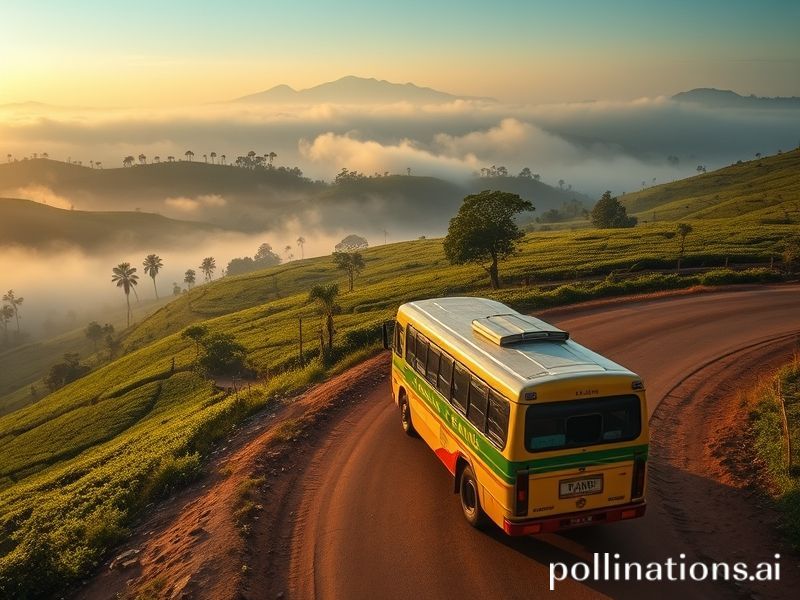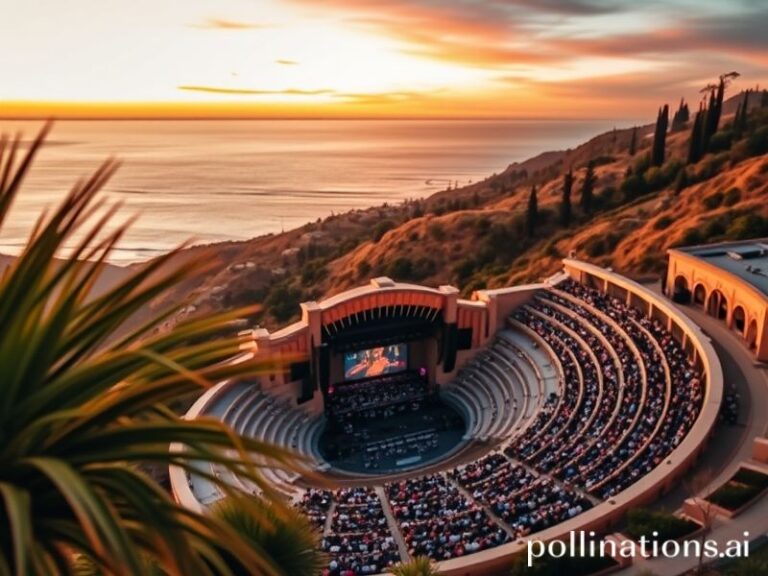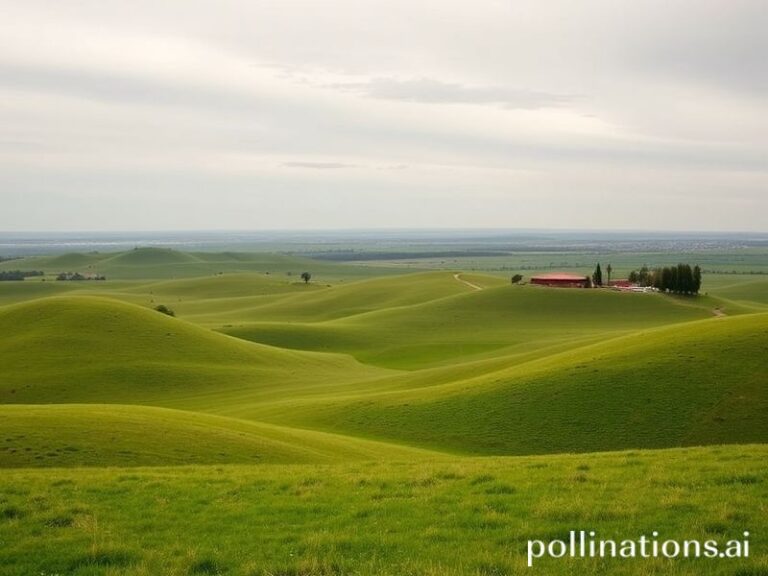Cameroon: The World’s Most Important Forgotten Nation—Chocolate, Coups, and the Art of Being Ignored
Yaoundé, Cameroon — Somewhere between the Gulf of Guinea and the Sahel’s latest geopolitical migraine lies Cameroon: a nation that has perfected the art of being simultaneously indispensable and invisible. While the rest of the planet argues over whose election is the most rigged or whose inflation is the most “transitory,” Cameroon keeps a low profile—like the quiet kid in the back of the class who, unbeknownst to everyone, is running a profitable side hustle selling term papers and AK-47s.
Let’s get the obligatory numbers out of the way: 28 million people, 250-plus ethnic groups, two official languages (French and English) that refuse to speak to each other, and one president—Paul Biya—who has been in office since the Berlin Wall was still taking selfies with tourists. Biya clocks in at 91 years young, making him the world’s longest-serving non-royal head of state and, by some estimates, the only man alive who can remember when the phrase “global supply chain” referred to a bicycle courier in Douala.
This longevity might be admirable if it weren’t so terribly inconvenient for the concept of democratic renewal. The international community, ever the polite dinner guest, murmurs “term limits” the way one might ask Great-Uncle Paul to maybe pass the salt before the soup congeals. Meanwhile, Cameroon’s opposition leaders rotate through courtrooms and safe houses with the weary predictability of a low-budget Netflix series nobody asked for.
Yet dismissing Cameroon as just another African gerontocracy would be intellectually lazy and, worse, commercially unwise. In an age when the world is frantically decarbonizing, Cameroon quietly supplies 30 percent of the world’s cocoa, the raw material for everything from Swiss chocolate to that $12 single-origin bar your yoga instructor insists cures seasonal depression. Should Cameroon’s Anglophone regions—the site of a grinding separatist conflict—descend into wider chaos, the price of your guilt-free mocha will skyrocket faster than you can say “ethical sourcing.”
That conflict, by the way, has already generated 700,000 internally displaced people and a humanitarian appeal that’s perpetually underfunded. Western diplomats, when not busy drafting sternly worded press releases, like to call it “the forgotten war.” The moniker is accurate insofar as anything that doesn’t trend on TikTok is, by definition, forgotten. Still, the violence has proven useful for global powers seeking a cautionary tale: France warns its other ex-colonies what happens when you flirt with federalism; Britain points to it as a Brexit dividend (“See? Anglophones suffer everywhere, not just in Kent”); China simply notes the security vacuum and adjusts its Belt-and-Road spreadsheets accordingly.
Speaking of Beijing, Cameroon owes China roughly one-third of its external debt, a figure that translates into shiny new ports, questionable feasibility studies, and the quiet understanding that UN votes on Xinjiang will continue to be… nuanced. The IMF, for its part, keeps extending credit like a bartender who knows the patron is broke but owns the jukebox. All parties agree that fiscal discipline is vital, preferably after the next election cycle, or the one after that.
In the background, climate change does what climate change does best: punish countries that contributed least to the problem. Northern Cameroon now toggles between drought and Biblical floods, sending herders and farmers into the kind of zero-sum resource competition that makes Twitter discourse look quaint. Lake Chad, once the size of El Salvador, is now the size of El Paso. The resulting instability metastasizes southward, conveniently intersecting with the separatist conflict and the Boko Haram franchise that refuses to die, much like certain streaming-service reboots.
What does the world get out of this slow-motion vortex? A live-action lesson in how fragile the global latticework of commodities, migration routes, and debt obligations really is. If Cameroon unravels, the shock waves won’t stop at the cocoa exchange; they’ll ripple through Côte d’Ivoire’s ports, Nigeria’s fuel depots, and eventually the quarterly earnings of every multinational that has slapped the word “sustainable” on its packaging.
So raise a glass—preferably fair-trade—to Cameroon: the canary in the cocoa mine, the octogenarian barometer of democratic decay, and the most important country you’ll pretend to have heard of until it’s too late. In a world addicted to outrage, Cameroon’s tragedy is that it’s simply too consistent to be clickbait. And that, dear reader, might be the darkest joke of all.







